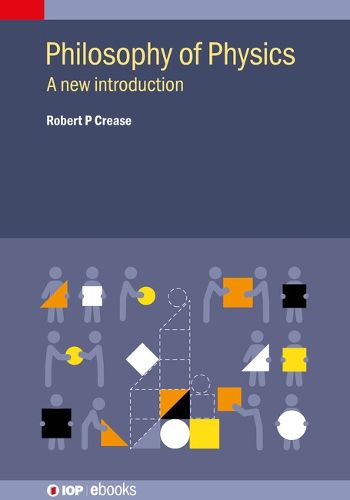Readings Newsletter
Become a Readings Member to make your shopping experience even easier.
Sign in or sign up for free!
You’re not far away from qualifying for FREE standard shipping within Australia
You’ve qualified for FREE standard shipping within Australia
The cart is loading…






This title is printed to order. This book may have been self-published. If so, we cannot guarantee the quality of the content. In the main most books will have gone through the editing process however some may not. We therefore suggest that you be aware of this before ordering this book. If in doubt check either the author or publisher’s details as we are unable to accept any returns unless they are faulty. Please contact us if you have any questions.
Three philosophical traditions that have paid particular attention to physics are the analytic (or Anglo-American, so-called because it was developed by British and American philosophers out of logical empiricism), pragmatic, and continental (or hermeneutical) traditions. They are stylistically and methodologically different, though ingredients of each are blended together (with history of science) in what has become known as science studies, which approaches science from the start as a cultural product. This book examines several different issues that arise in physics to illustrate what philosophy of physics is about, what the different traditions reveal about physics, and the value of these inquiries. The topics examined include discovery, experiment, method, space, time, and the interpretation of quantum mechanics. This book makes clear the value of the work of the three philosophical approaches to those who understand and practise physics. These approaches bring different kinds of expertise to their analyses and scrutinize in detail different features of what is taking place: the logic, the puzzle-solving, and the interpretative and self-interpretative activity of physics. The three traditions of philosophers, who look at different dimensions of scientific practice with different aims and audiences in mind, tend to include people with expertise in fields that lie beyond physics. Their research, in other words, may well help physicists themselves to think about their work in ways they ordinarily do not, and to ward off misconceptions about the nature of scientific activity
$9.00 standard shipping within Australia
FREE standard shipping within Australia for orders over $100.00
Express & International shipping calculated at checkout
This title is printed to order. This book may have been self-published. If so, we cannot guarantee the quality of the content. In the main most books will have gone through the editing process however some may not. We therefore suggest that you be aware of this before ordering this book. If in doubt check either the author or publisher’s details as we are unable to accept any returns unless they are faulty. Please contact us if you have any questions.
Three philosophical traditions that have paid particular attention to physics are the analytic (or Anglo-American, so-called because it was developed by British and American philosophers out of logical empiricism), pragmatic, and continental (or hermeneutical) traditions. They are stylistically and methodologically different, though ingredients of each are blended together (with history of science) in what has become known as science studies, which approaches science from the start as a cultural product. This book examines several different issues that arise in physics to illustrate what philosophy of physics is about, what the different traditions reveal about physics, and the value of these inquiries. The topics examined include discovery, experiment, method, space, time, and the interpretation of quantum mechanics. This book makes clear the value of the work of the three philosophical approaches to those who understand and practise physics. These approaches bring different kinds of expertise to their analyses and scrutinize in detail different features of what is taking place: the logic, the puzzle-solving, and the interpretative and self-interpretative activity of physics. The three traditions of philosophers, who look at different dimensions of scientific practice with different aims and audiences in mind, tend to include people with expertise in fields that lie beyond physics. Their research, in other words, may well help physicists themselves to think about their work in ways they ordinarily do not, and to ward off misconceptions about the nature of scientific activity